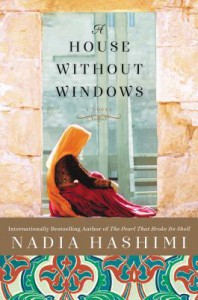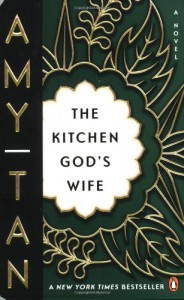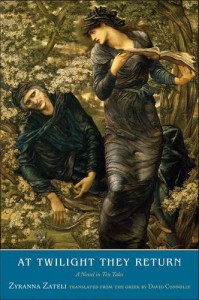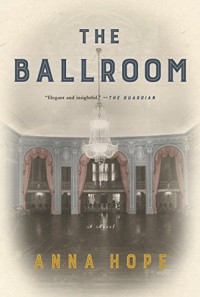Summer Reading Project, BookLikes Satellite
Never stop reading. (Content originally posted at Blogger.)
The Unquiet Dead, by Ausma Zehanet Khan

Esa Khattak and Rachel Getty are two Toronto police officers who have the unenviable job of working “sensitive” cases involving Canada’s immigrant community. Not only do they have to solve mysteries and see justice done, they have the added pressure of keeping a lid on things so that they don’t become a media nightmare for the government. The Unquiet Dead, by Ausma Zehanet Khan, is the first book in a planned series featuring the two characters. If the mystery at the center of this book is anything to judge by, Khattak and Getty deserve a raise. As The Unquiet Dead opens, it’s not clear that there is a crime to solve. A rich man appears to have died after an accidental fall. Khattak and Getty don’t know why they’ve been called in exactly, until evidence surfaces that the rich man might have been a Serbian war criminal...
Read the rest of my review at A Bookish Type.
The Trees, by Ali Shaw

Some people need a catalyst to spur them to become who they were always meant to be: better, wiser, stronger. Adrien Thomas’s catalyst, as we learn in Ali Shaw’s The Trees, is more catastrophic than most. One night, he goes to sleep after eating cheap takeaway and sulking about his life. When he wakes in the morning, he discovers that the primeval forest has returned with a vengeance. Massive trees have erupted everywhere, destroying houses, roads, and anything that stands in their path. Civilization collapses as the trees rise. But Adrien, miserable and cowardly as he is, now has a mission in life: to find his wife...
Read the rest of my review at A Bookish Type.
 1
1
His Bloody Project, by Graeme Macrae Burnet

I would be a terrible juror. I overthink things so much that I would never be able to come to a decision with my fellow jurors. Graeme Macrae Burnet’s His Bloody Project was just a reminder of just how bad I would be if I ever had to decide someone’s guilt or innocence. (Also, I’ve read too many mysteries and might be tempted to Jessica Fletcher my way through the trial.) His Bloody Project puts us right in the jurors’ box in the case of Roderick Macrae. In August 1869, Roddy murdered three people by bludgeoning them to death with farm tools. He admitted that he did it. The question for the jury (and readers) is whether he was insane when he committed the murders. Burnet’s novel is told through witness statements, court accounts, and Roddy’s own jailhouse biography. For readers like me, who love unreliable narrators and ambiguous stories, this book is catnip...
Read the rest of my review at A Bookish Type. I received a free copy of this book from NetGalley for review consideration.
 2
2
A House Without Windows, by Nadia Hashimi

Nadia Hashimi’s A House Without Windows is the kind of book tailor-made to make feminist Westerners seethe. Hardly a chapter goes by without a new variation on injustice to Afghani women. And yet, Hashimi is a skilled enough writer to keep her message from overwhelming the very interesting mystery that anchors the novel. We get to ponder the abuses of women accused of zina (sex outside of marriage, prohibited by sharia law) for being troublesome while also trying to figure out if Zeba, the protagonist, really did murder her husband with a hatchet...
Read the rest of my review at A Bookish Type.
 1
1
Salt to the Sea, by Ruta Sepetys

Based around the real sinking of the MV Wilhelm Gustloff, Ruta Sepetys’s novel, Salt to the Sea, is a quick-paced tale of strangers pushed together in straitened circumstances. All of them have secrets and agendas. All of them just want to get somewhere safe and wait for the war to end. The tension builds with every strafing from the Russian air force and every demand for papers from Wehrmacht soldiers. Sepetys makes the situation so dire for her protagonists that I honestly wondered if anyone would survive...
Read the rest of my review at A Bookish Type.
The Kitchen God's Wife, by Amy Tan

Originally published in 1991, Amy Tan’s The Kitchen God’s Wife gives us (well, at least me) more of what we loved from The Joy Luck Club: a story in which a mother reveals a hidden life of hardship in China to her daughter. While the book opens on Winnie Louie’s daughter and the misunderstandings that are souring the mother-daughter relationship, the majority of the book is Winnie’s story...
Read the rest of my review at A Bookish Type.
Babayaga, by Toby Barlow

Will van Wyck is an ordinary advertising man, working in France around 1960. On the side, he provides reports on various companies to a man who works for the CIA. This is about as much excitement as he can safely handle. When he gets involved with the mysterious Zoya, a woman who will hex you as soon as look at you, and with the chatty, Oliver, who drags Will much farther into the world of espionage than he really wanted. Toby Barlow’s imaginative Babayaga begins with separate plot threads narrated by Will, Zoya, and several other characters, slowly pulling them all together in a climactic and heart-wrenching ending...
Read the rest of my review at A Bookish Type.
 1
1
At Twilight They Return, by Zyranna Zateli

Zyranna Zateli’s meandering collection of tales, At Twilight They Return (translated by David Connolly), reminds me of sitting down with an elderly relative. Bits are fascinating. Others seem like tangents until the storyteller gets back to their original point. Yet more parts are shocking, tragic, or both. At Twilight They Return tells ten stories about various members of the Christoforos clan at the end of the nineteenth century...
Read the rest of my review at A Bookish Type. I received a free copy of this book from NetGalley for review consideration.
 1
1
The Last Days of New Paris, by China Miéville

I’m often drawn to books simply because the premise amuses or intrigues me, only to be disappointed when an author doesn’t have the imagination to pull it off. I never worry about China Miéville’s ability to take a weird idea and run with it to an off-kilter but thoughtful conclusion. It only took a sentence in the reviews to get me to pick up his latest creation, The Last Days of New Paris. Once I learned that this book would feature a Paris at war with the Nazis after a Surrealist bomb had transformed the city, I just had to read it. I was not disappointed...
Read the rest of my review at A Bookish Type.
The Girl from Venice, by Martin Cruz Smith

Cenzo Vianello has been sitting out the war, fishing his family’s waters in the lagoons off of Venice and avoiding Germans, Italian fascists, partisans, and the war on the mainland. He served in Mussolini’s Abyssinian War and that was enough for him. He might have managed to get through the entire Second World War without getting involved if he hadn’t found Giulia in the lagoon one night. After that night, Cenzo abruptly finds himself right in the middle of everything. Though Martin Cruz Smith called this novel The Girl from Venice, Giulia is only a catalyst for Cenzo to become the hero he refused to be...
Read the rest of my review at A Bookish Type. I received a free copy of this book from Edelweiss for review consideration.
The Good Earth, by Pearl S. Buck

Originally published in 1931, The Good Earth by Pearl S. Buck delivers a problematic (for oh so many reasons) portrait of a family that rises and falls and rises again in the years before the 1911 revolution. Buck lived in China for years, working as a missionary (though she later gave speeches against missionary work), and appears to have fallen in love with the culture. I daresay The Good Earth contains much of what Buck learned about everyday life in rural China—though I have a lot of questions about how much is true and how much is stereotype. I was worried when I started the book that I would see a lot of racism. I was wrong on that front. Instead, I should have worried about misogyny and sexism...
Read the rest of my review at A Bookish Type.
The Ballroom, by Anna Hope

After reading a couple of romance novels to get The Midwife out of my system, I dove back into my to-read pile and came up with The Ballroom by Anna Hope. This book has been on my to-read list since I first read a review of it in one of the journals that’s always floating around my colleague’s offices, tempting us to buy more books. I’ve long had a fascination with pre-ethics board asylums and psychology for reasons I haven’t quite fathomed yet. The Ballroom is set at one such as asylum in rural England just before the First World War. Two inmates meet at the weekly dance, not knowing that they are the object of a doctor’s research into eugenics...
Read the rest of my review at A Bookish Type.
The Midwife, by Katja Kettu

Finnish Lapland is a brutal place. It’s above the Arctic Circle. It’s remote. Until the Russian Revolution and World War II arrived, even the modern world hadn’t touched it much. In Katja Kettu’s The Midwife (translated by David Hackston), we see a level of horror visited up on the Finns and Sami who live there that the history books didn’t prepare us for. In the course of one year, the titular midwife lives through a compressed version of the Finnish war experience...
Read the rest of my review at A Bookish Type. I received a free copy of this book from NetGalley for review consideration.
 1
1
House of Blazes, by Dietrich Kalteis

A wronged convict seeking revenge is not an uncommon one. What makes Dietrick Kalteis’s House of Blazes unusual are two details. First, Levi Hayes has terrible luck. Second, Levi Hayes has launched his plan to get back at the man who sent him to prison two days before the San Francisco Earthquake of 1906. Levi doesn’t know the clock is ticking, but we do. To be honest, I was counting down to the earthquake simply because Levi’s plan goes so awry that I thought the earthquake might put it out of its misery...
Read the rest of my review at A Bookish Type. I received a free copy of this book from NetGalley for review consideration.
 2
2
Hag-Seed, by Margaret Atwood

One of the joys of reading the Hogarth Shakespeare series is seeing how different authors respond to the original plays. Some retell the stories in a modern context (The Gap of Time and Vinegar Girl) or respond to the problems of the play (Shylock is My Name). In Hag-Seed, Margaret Atwood takes on The Tempest and achieves a remarkably multi-layered approach to a play that is, to put it mildly, a little batshit. In this version of the tale, a theater director whose life mirrors Prospero’s decides to use a staging of the play inside a prison to get revenge on the people who displaced him. Of course, this bare summary does no justice to Atwood’s writerly skill...
Read the rest of my review at A Bookish Type. I received a free copy of this book from NetGalley for review consideration.
 3
3
The Devourers, by Indra Das

Alok shouldn’t trust the stranger he meets at a baul (a musical performance by Bengali mystics). The stranger tells him this more than once as he pulls Alok into the story of his past. Even though Alok is a history professor, he has to know more about the stranger’s story of werewolves, rakshasas, and a Mughal woman who was unfortunate enough to draw the attention of a monster. The Devourers, by Indra Das, is a strange history of creatures from folklore who are uncomfortable in all of their skins...
Read the rest of my review at A Bookish Type.



 1
1